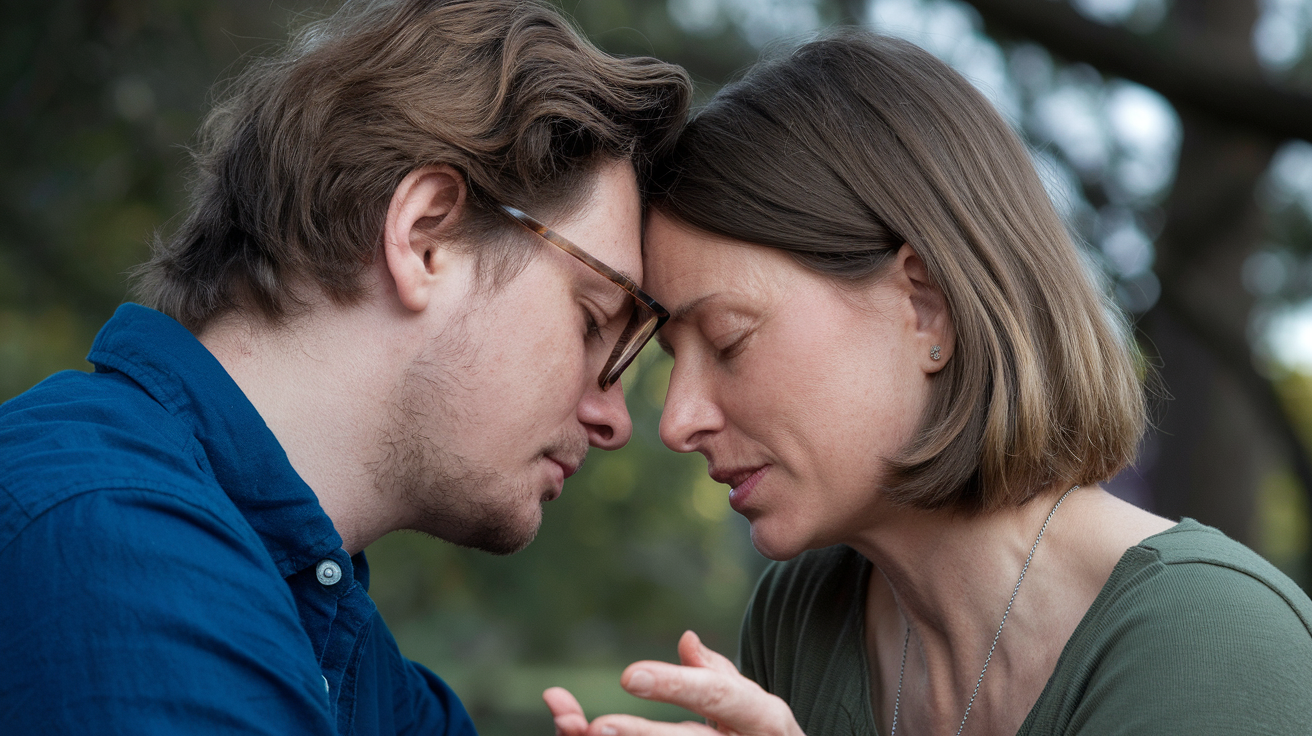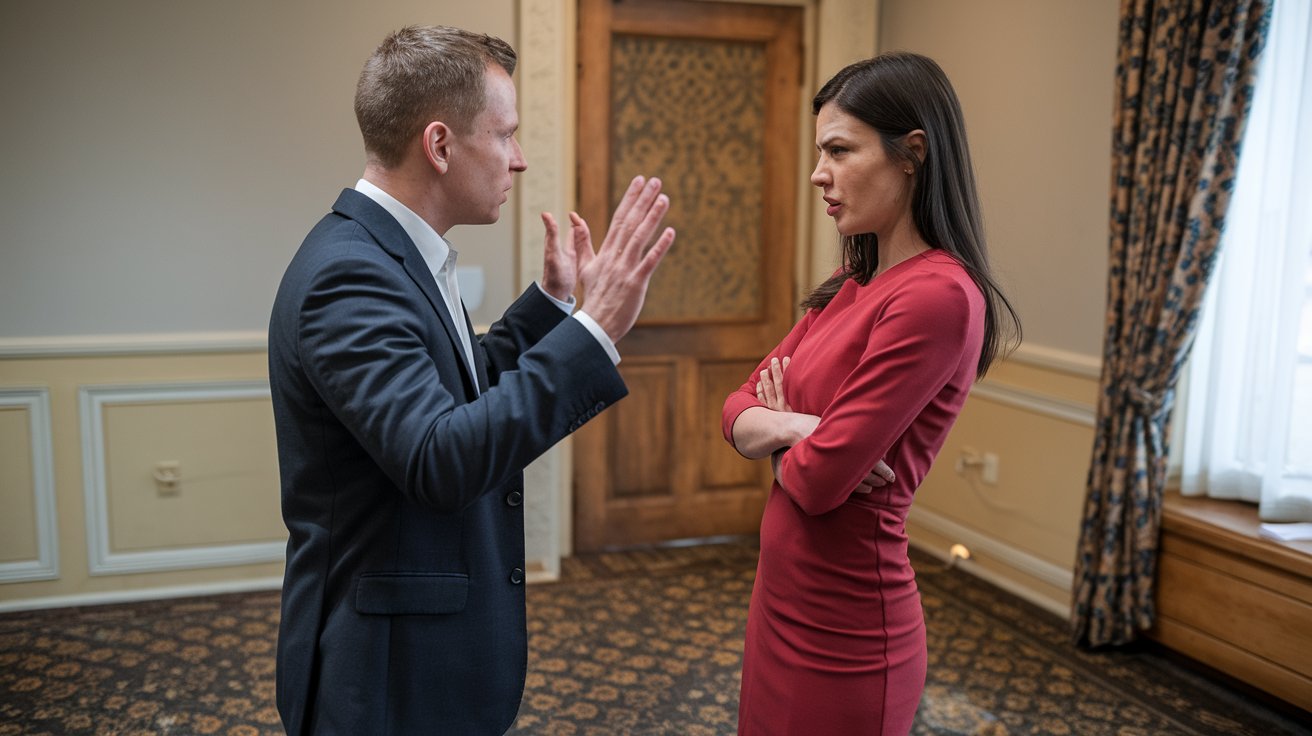Have you ever felt stuck in your relationship, like you’re talking but not really being heard? You’re not alone.
Many couples go through rough patches, and that’s perfectly normal. Think of couple therapy as having a friendly guide for your relationship.
It’s not about pointing fingers or finding who’s right. Instead, it’s about learning to understand each other better.
Others worry about opening up to a stranger. But here’s the truth-seeking help is a sign of strength, not weakness.
Let’s explore the different types of couple therapy together so you can find the right fit for your relationship.
Different Types of Couples Therapy
Here’s a list of different types of couple therapy, how each therapy works, and the typical duration:
1. Emotionally Focused Therapy (EFT)

This helps couples understand and manage their emotions, aiming to strengthen emotional bonds and attachment.
How It Works: Focuses on exploring emotional patterns, identifying unmet needs, and fostering secure bonds.
Duration: Typically 8-20 sessions.
2. Gottman Method

It is based on research about what makes relationships last. It focuses on improving communication and conflict resolution.
How It Works: Couples learn to handle conflicts, build respect, and improve emotional intimacy.
Duration: Usually 12-20 sessions.
3. Cognitive Behavioral Therapy (CBT) for Couples

This therapy aims to change negative thought patterns that lead to emotional distress and relationship problems.
How It Works: Couples identify and reframe harmful thoughts and behaviors.
Duration: Generally 8-12 sessions.
4. Imago Relationship Therapy

This type of therapy focuses on understanding each other’s past wounds and healing them within the relationship.
How It Works: Uses structured communication exercises to help partners understand each other’s emotional experiences.
Duration: Usually 10-20 sessions.
5. Behavioral Couples Therapy (BCT)

It focuses on changing negative behavior patterns and promoting healthier habits.
How It Works: Couples work on reinforcing positive behaviors and reducing harmful ones.
Duration: Typically 10-20 sessions.
6. Narrative Therapy

This encourages couples to reframe their relationship’s story and create new meaning.
How It Works: Partners explore their beliefs and values and rewrite their relationship narrative.
Duration: Usually 6-12 sessions.
7. Solution-Focused Brief Therapy (SFBT)

This kind of therapy focuses on finding practical solutions to specific relationship problems.
How It Works: Couples set goals and focus on solutions, not past issues.
Duration: Short-term, typically 6-12 sessions.
8. Psychodynamic Couples Therapy

This therapy explores the unconscious drivers of behavior and emotions in the relationship.
How It Works: Couples reflect on past experiences and how they affect their current relationship dynamics.
Duration: Can last 12-24 sessions.
9. Dialectical Behavior Therapy (DBT) for Couples

It focuses on helping couples manage extreme emotions and improve communication.
How It Works: Partners learn mindfulness, distress tolerance, and emotional regulation techniques.
Duration: Typically 12-20 sessions.
10. Attachment-Based Therapy

This therapy is based on attachment theory; it aims to foster secure attachment and emotional connection.
How It Works: Couples explore attachment styles and how they influence their interactions.
Duration: Usually 8-16 sessions.
11. Couples’ Cognitive Therapy (CCT)

This CCT therapy completely focuses on identifying and changing negative thinking patterns that damage the relationship.
How It Works: Couples work on reframing negative beliefs about themselves and each other.
Duration: Typically 12-20 sessions.
12. Sex Therapy

It helps couples address sexual concerns, including performance anxiety, mismatched libido, or communication about sexual needs.
How It Works: Couples engage in open discussions, guided exercises, and education to improve their sexual relationship.
Duration: Typically 8-12 sessions.
13. Family Therapy for Couples

It involves family dynamics and how they affect the couple’s relationship.
How It Works: Couples work with a therapist to address family issues that impact their relationship.
Duration: Generally 10-15 sessions.
14. Couples Meditation or Mindfulness Therapy

This therapy uses mindfulness techniques to improve emotional awareness and reduce relationship stress.
How It Works: Couples practice meditation, breathing exercises, and mindfulness to increase emotional regulation.
Duration: Varies, usually around 8-12 sessions.
15. Integrative Behavioral Couples Therapy (IBCT)

It is a blend of behavioral therapy and acceptance techniques that focus on emotional acceptance and change.
How It Works: Couples work to understand and accept each other’s emotional experiences while also changing negative behaviors.
Duration: Typically 12-20 sessions.
Major Signs You Should Consider Taking Couples Therapy

Here are some common signs that you and your partner should consider taking couples therapy:
- Frequent Arguments: Regular, unresolved conflicts can signal communication breakdowns, which therapy can help improve.
- Emotional Distance: Feeling disconnected leads to intimacy issues. Therapy helps identify and address the root causes.
- Lack of Trust: Trust issues affect relationships. Therapy rebuilds trust by addressing fears and concerns.
- Unresolved Past Issues: Past conflicts resurface without resolution. Therapy helps process and move on from old wounds.
- Loss of Intimacy: Stress or emotional barriers can reduce intimacy. Therapy guides you to reconnect emotionally and physically.
- Different Life Goals: Clashing goals create tension. Therapy helps explore each other’s perspectives and find common ground.
- Constant Criticism: Frequent criticism harms the relationship. Therapy helps shift from judgment to understanding and respect.
- Struggling with Major Changes: Major life changes bring stress and uncertainty. Therapy offers a space to navigate these challenges together.
Key Benefits of Taking Couple Therapy
- Improved Communication: Therapy helps couples communicate better by teaching listening skills and clear expression. This reduces misunderstandings and strengthens the relationship.
- Conflict Resolution: Couples learn healthy ways to handle disagreements. Therapy provides tools to argue constructively without damaging the relationship.
- Stronger Emotional Connection: Therapy helps partners understand each other’s feelings, building trust and emotional closeness, which strengthens the bond.
- Increased Empathy: Couples develop empathy for each other’s emotions and needs, leading to more understanding and less judgment.
- Better Problem-Solving Skills: Therapy encourages collaborative problem-solving, helping couples address issues together rather than feeling alone in the relationship.
- Prevention of Future Problems: Therapy teaches proactive relationship skills, helping prevent potential issues before they escalate into bigger problems.
- Restored Intimacy: Through therapy, couples often reconnect emotionally and physically, enhancing intimacy and satisfaction in the relationship.
- Support During Tough Times: Therapy provides a safe space to address challenges like parenting, financial stress, or major life changes, offering support and guidance during tough times.
Conclusion
All in all, couples therapy can be a powerful tool for strengthening your relationship If you’re dealing with constant arguments, emotional distance, or major life changes.
It offers a safe space to communicate openly, rebuild trust, and work through unresolved issues.
If you’re feeling stuck or disconnected, therapy provides valuable techniques to help you grow together and find solutions.
Remember, seeking help isn’t a sign of weakness; it’s a step toward creating a healthier, more fulfilling partnership.
If you recognize any signs from our discussion, consider giving therapy a try—it could be the turning point your relationship needs!
Frequently Asked Questions
What is the Best Couples Therapy Method?
The best couples therapy method depends on individual needs, but Emotionally Focused Therapy (EFT) and the Gottman Method are highly effective for improving communication, trust, and emotional connection.
Will Couples Therapy Save My Relationship?
Couples therapy can improve communication, address issues, and strengthen your bond. While it doesn’t guarantee a perfect outcome, it can provide the tools to work through challenges and enhance your relationship.
When to Quit Couples Therapy?
You may consider quitting couples therapy if both partners are no longer committed to the process, aren’t willing to make changes, or if progress has stalled after consistent effort.








